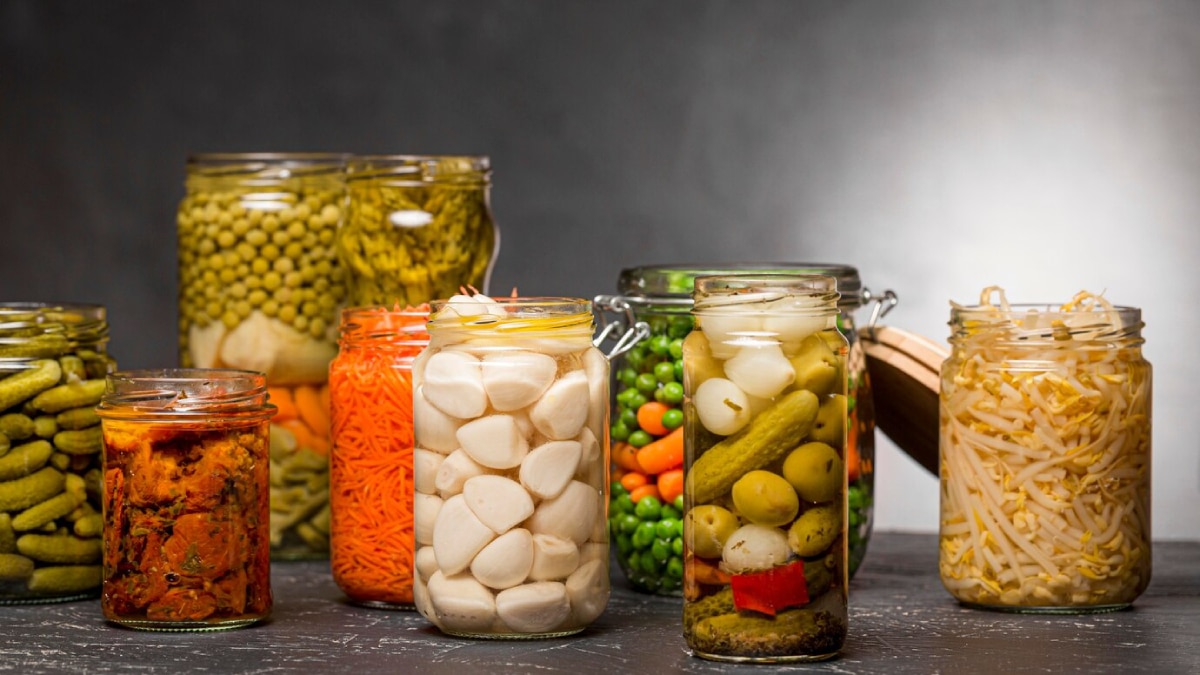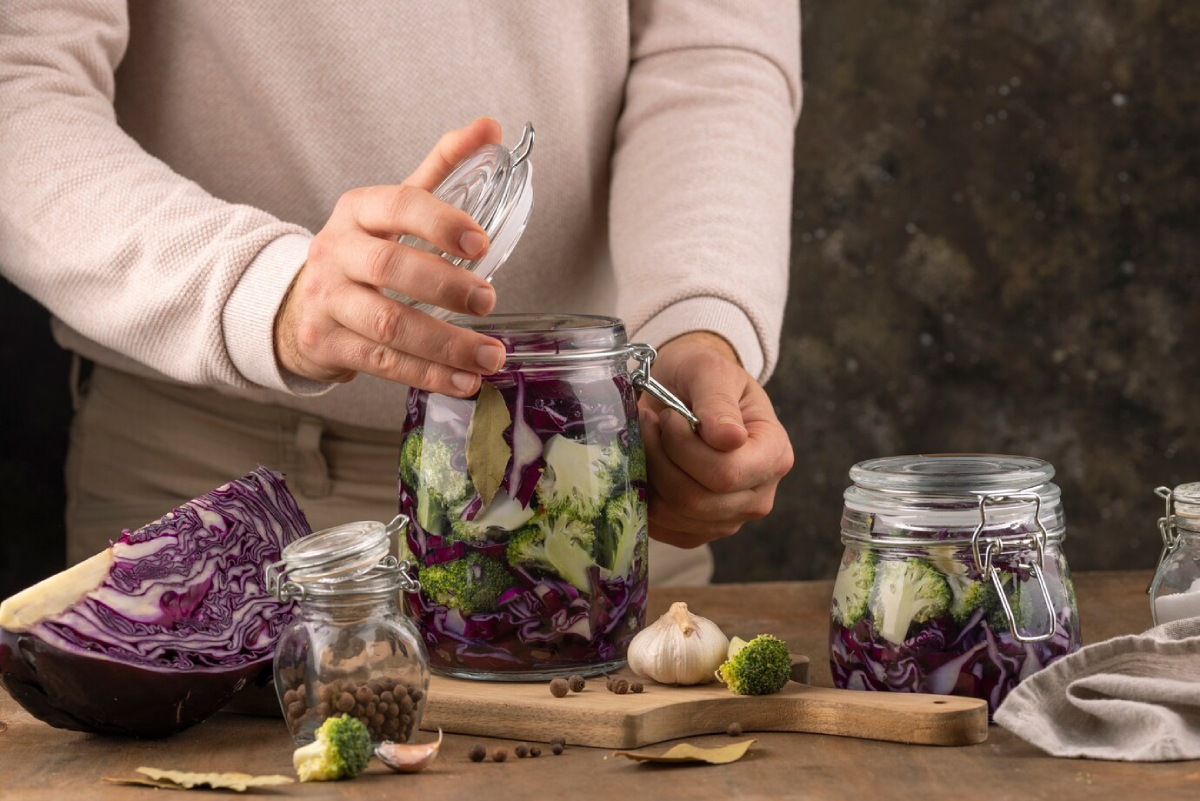
Exploring the Role of Fermented Foods in Mental Wellness
Ever had a gut feeling about something? You’re not alone—and you’re not wrong either. Science is learning from ancient wisdom. There’s a real, physical link between the gut and the brain. The trillions of microbes in your gut do more than aid digestion. They also affect how you feel, think, and react to stress.
This article explores how fermented foods boost mental wellness. It covers the biology of the gut-brain connection. Plus, you’ll learn how to eat for a healthier mind. If you feel anxious every day or want to lift your mood, these foods can help. They’re a simple and effective part of your wellness toolkit.
The Gut-Brain Axis: What It Is and Why It Matters
Two Minds, One Connection
The gut and brain connect directly via the vagus nerve. This nerve works like a superhighway. It sends messages between your central nervous system and the enteric nervous system. This is your gut’s “mini brain.”
They constantly influence each other:
- Stress can cause digestive problems
- Digestive issues can worsen mental health
This dynamic is known as the gut-brain axis, and it explains why treating the gut may help balance the mind.
Microbes That Influence Mood
Your gut microbiota plays a key role in regulating:
- Serotonin (up to 90% is produced in the gut)
- Dopamine (pleasure and motivation)
- GABA (calms the nervous system)
When the balance of good and bad bacteria is disrupted (a condition called dysbiosis), it may contribute to:
- Anxiety
- Depression
- Brain fog
- Poor stress response
That’s where fermented foods come in.
What Are Fermented Foods?
Fermented foods have undergone a natural process where beneficial bacteria or yeast break down food components (like sugars and starches) into acids or alcohol. This not only preserves the food but also enhances its nutritional profile and probiotic content.
Probiotic Brain Benefits
- Reduce inflammation in the body and brain
- Regulate neurotransmitter production
- Support the blood-brain barrier
- Improve cognitive function and memory
The link between fermented food mental health is now backed by both emerging science and centuries of anecdotal experience.

How Fermented Foods Support Mental Wellness
1. They Reduce Systemic Inflammation
Chronic inflammation is linked to mood disorders. Probiotics in fermented foods help:
- Balance immune responses
- Strengthen the gut lining
- Prevent “leaky gut,” which allows inflammatory molecules to enter the bloodstream
2. They Improve Nutrient Absorption
Mood-regulating nutrients like magnesium, zinc, and B vitamins are better absorbed when gut flora is healthy.
3. They Influence Hormonal Balance
Gut bacteria help regulate cortisol (the stress hormone) and oestrogen levels, both of which impact mental well-being.
4. They Help Produce and Modulate Neurotransmitters
Good bacteria can synthesise or influence the production of neurotransmitters like serotonin and dopamine—chemicals directly responsible for how you feel.

Top Fermented Foods That Help with Mental Wellness
1. Yoghurt with Live Cultures
Why It Works: Contains lactobacilli and bifidobacteria that have been shown to reduce anxiety-like behaviour in both animal and human studies.
Best Way to Use:
- As a snack with berries
- Mixed into smoothies
- As a base for probiotic sauces
2. Kefir
Why It Works: A powerful mix of bacteria and yeasts that influence the gut-brain connection more robustly than yoghurt.
Try It:
- In breakfast bowls
- Straight up as a drink
- With cinnamon and honey for dessert
3. Kimchi
Why It Works: Rich in lactobacilli and anti-inflammatory compounds, kimchi may help reduce depressive symptoms.
Use It In:
- Fried rice
- Sandwiches
- Omelettes
4. Sauerkraut
Why It Works: Offers a high dose of lactic acid bacteria and is linked with improved memory and reduced anxiety.
Add It To:
- Hot dogs (the healthier kind!)
- Grain bowls
- Salads
Want to make your own? Start with Fermented Onions: A Simple Guide
5. Miso
Why It Works: Contains isoflavones and probiotics that have been linked to emotional stability and hormonal balance.
Enjoy It:
- In soup
- As a marinade
- Mixed into dressings
6. Tempeh
Why It Works: Fermented soy loaded with protein, fibre, and probiotics to support gut and brain harmony.
Great In:
- Stir-fries
- Wraps
- Vegan tacos
Real-Life Stories: Mind and Mood Transformations
“I Ditched My Energy Slumps”
“I used to hit a wall every afternoon. Since adding kefir and sauerkraut to lunch, my energy feels steady and I’m more focused.” — Chloe, 32, Birmingham
“Ferments Became My Stress Armour”
“Work stress used to leave me anxious and bloated. Now I have kimchi every evening and feel more relaxed overall.” — Darren, 45, Bristol
“Helped My Postpartum Mood Swings”
“Yoghurt and miso soup became my postpartum go-to. My mood stabilised, and my gut felt less sensitive.” — Leanne, 29, Leeds
Add Fermented Foods to Your Daily Routine
1. Start Small
Don’t overhaul your diet overnight. Begin with a spoonful of sauerkraut or a glass of kefir and see how your body responds.
2. Make It a Habit
Pair your ferments with existing meals:
- Kimchi with dinner
- Yoghurt with breakfast
- Miso soup as a snack
3. Rotate for Diversity
Each fermented food contains different strains of bacteria. Rotating them gives your microbiome a broader benefit.
4. Choose Unpasteurised and Raw Versions
Heat kills probiotics. Choose raw or unpasteurised options when buying fermented foods.
Risks, Myths, and Safety Tips
Myth: All fermented foods are probiotic
Fact: Only unpasteurised, live-culture products deliver probiotic benefits.
Myth: Fermented foods upset your stomach
Fact: Some initial gas or bloating is normal. Start small and gradually increase.
Safety Tips:
- Use clean utensils to avoid contamination
- Always refrigerate after opening
- Trust your senses—bad smell or mould = compost it
Trust Your Gut to Lift Your Mind
It’s not just a catchy phrase—your gut truly has a mind of its own. And by nourishing it, you’re not only improving digestion but laying the groundwork for a happier, more balanced mental state. The synergy between your microbiome and your mood is one of the most exciting areas of health today.
Start slow. Stay consistent. Be mindful of how your body and mind respond. The journey to mental wellness might just begin with a humble spoonful of fermented cabbage or a sip of tangy kefir.
Learn how to support your gut daily with Best Fermented Foods for Digestive Health


